Mum-of-two still can't walk or play with children five months after recovering from coronavirus











Mum-of-two still can't walk or play with children five months after recovering from coronavirus
A nurse with two children is still struggling from the impact of the coronavirus almost six months after being diagnosed with the virus.A nurse with two children is still struggling from the impact of the coronavirus almost six months after being diagnosed with the virus.
Jess Marchbank, who was fit and healthy before her diagnosis found out she had COVID-19 after suffering from a sore throat at the start of the pandemic.After spending three days in hospital, she was released in late March. She now wants to warn people about the long-term affects of the virus, after still not being able to walk, work or play with her children after almost six months.Speaking about her experience, Marchbank said: “I don't really feel like I'm living any more, physically I can't do anything because of the fatigue.
“I have chronic fatigue now, so if I do something simple like opening the blinds in the morning I have to sit down after doing that.“I can't play with the kids properly, I can't work, I can't do anything without getting breathless.”
Before she was diagnosed, she lived a healthy and fit life, a stark warning that the coronavirus can affect anybody. “I was fit and healthy before. I was in the gym three times a week and could lift 90kg dead weights, but now I can't even lift my two-year-old,” Marchbank explained.
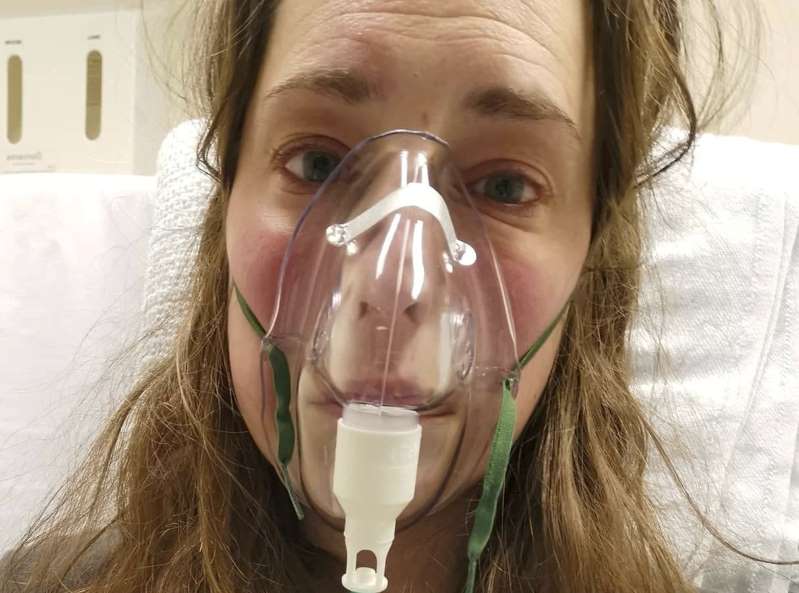
“When I do try and do anything I get so many uncomfortable and painful things happen.“Just walking up the stairs can cause my heart to jump up to 180bpm then it drops to 70 which makes me throw up.”Doctors still aren’t sure how long the long-term symptoms of her illness will impact her life for, as the coronavirus is such a new virus.
Russia’s coronavirus vaccine produces no safety concerns, early research suggests She said that she dreams of being able to play with her children, Noah, five, and Lanie, two, and of being able to spend time with her husband, Fraser, 38.
As on now, she’s currently seeing a cardiologist and waiting for further monitoring.Speaking of her symptoms, Marchbank said that they came on instantly and she was “rushed to hospital” quickly after her initial sore throat.In a Facebook post written shortly after her stint in hospital, she wrote this message to people choosing to ignore the lockdown restrictions:
“If you think this isolated 'lockdown' is bad and you're ignoring the guidelines because 'they're stupid', then let me tell you this - being fully isolated from the people you love and not knowing when (or if) you'll hug them again is heck of a lot worse.
“Team that with the chronic piercing headache, limbs feeling on fire, painful chest, and the drowning tightness in your lungs... Now that's bad. It was worse than bad.“Stop messing about. Start taking this seriously. “If you can't do it for yourself, do it for your granny and granddad, your immunocompromised friend, that little kid with cystic fibrosis, your mum with high blood pressure, your dad with diabetes. “Do it for our NHS, stop the spread.”
Jess is not along. Earlier today, a report suggested tens of thousands of people with “long Covid” have had symptoms of illness for more than three months.Tens of thousands of people with so-called “long Covid” have had symptoms of illness for more than three months, reports suggest.
Professor Tim Spector, who is leading the Covid Symptom Study app, said that 60,000 people have been ill for more than three months.While some people have a mild form of illness, others have been seriously affected. People affected with long-term symptoms have described how they have been previously fit and healthy and now they are confined to a wheelchair.
Breathlessness and fatigue have been reported by long-term sufferers and some have described how doing shopping or climbing stairs can leave them bed-ridden for days.Prof Spector, professor of genetic epidemiology at King’s College London, told BBC Radio 4’s File On 4 that data from the app shows that around 300,000 people have reported symptoms lasting for more than a month.
Persistent health problems following acute disease have included: respiratory symptoms and conditions such as chronic cough, shortness of breath; lung problems including inflammation and scarring; heart issues including chest tightness, heart failure and scarring; protracted loss or change of smell and taste; mental health problems including depression, anxiety and cognitive difficulties; inflammatory disorders such as muscle pain; gastrointestinal problems; continuing headaches; fatigue, weakness and sleeplessness; liver and kidney dysfunction; clotting disorders and thrombosis; problems with the lymph nodes and skin rashes.
Reference: Yahoo News: Caroline Allen: 08/09/2020
Thyroid problems 'could increase risk of developing anxiety'










Thyroid problems 'could increase risk of developing anxiety'
People with thyroid problems could be at a significant risk of developing anxiety.People with thyroid problems could be at a significant risk of developing anxiety.Researchers from the Kyiv City Clinical Hospital, Ukraine, discovered that patients with autoimmune inflammation of their thyroid had a high chance of anxiety disorders.
They further found that people with anxiety had undiagnosed thyroid conditions, and the scientists have pointed to mental wellbeing as playing a vital role in thyroid inflammation.
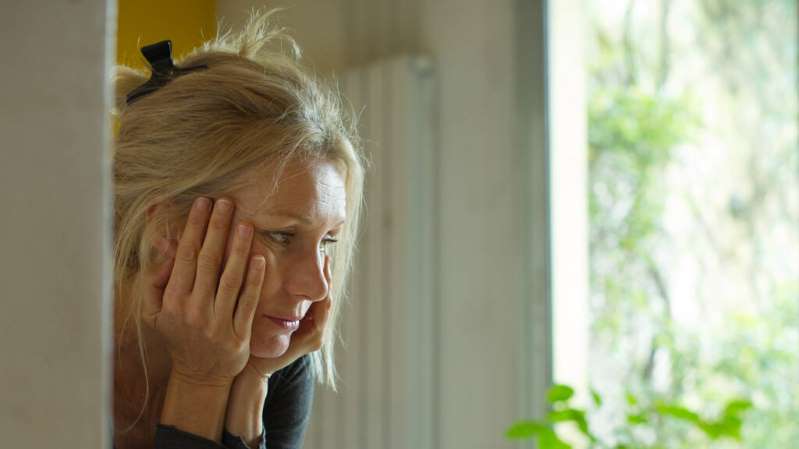
The thyroid gland is a small gland in the neck, and produces hormones thyroxine (T4) and triiodothyronine (T3) which are essential for regulating heart, muscle and digestive function, and brain development.
And thyroid problems, including inflammation, occur when the body wrongly produces antibodies that attack the gland.
Almost 60 people were analysed in the study – 29 men and 27 women – that had all been diagnosed with anxiety, and were experiencing panic attacks.
After undergoing ultrasounds of their thyroid glands, the patients with anxiety showed signs of inflammation, and were subsequently treated with ibuprofen and thyroxine to reduce their thyroid hormone levels and anxiety.
"These findings indicate that the endocrine system may play an important role in anxiety. Doctors should also consider the thyroid gland and the rest of the endocrine system, as well as the nervous system, when examining patients with anxiety," Dr Juliya Onofriichuk explained.
She urged for more research into the findings, and wants the study to help doctors effectively treat patients and improve their thyroid function, which could have a long-term positive effect on their mental health.
Reference: Cover Media: 16 hrs ago: 07/09/2020
Bruce Williamson dies after coronavirus battle










Bruce Williamson dies after coronavirus battle
The Temptations singer - who joined the band in 2006 and sang lead on 2007's 'Back to the Front' and 2010's 'Still Here' - has reportedly passed away at the age of 49 after being diagnosed with COVID-19.The Temptations singer - who joined the band in 2006 and sang lead on 2007's 'Back to the Front' and 2010's 'Still Here' - has reportedly passed away at the age of 49 after being diagnosed with COVID-19.
A post by his son on social media revealed: "There's no words in the world that can express how I feel right now I love you Daddy thank you for being awesome thank you for being loving thank you for being Who You Are I pray to God and we will meet again. I love you Daddy R.I.H KING WILLIAMSON (sic)"

Bruce died at his home in Las Vegas, Nevada on Sunday night (06.09.20).
The Temptations were originally formed in the 1960s and was made up of founding members Otis Williams, Elbridge 'Al' Bryant, Melvin Franklin, Eddie Kendricks and Paul Williams. They saw many line up changes over the years, but Bruce was always humbled by the fact he got to sing with Otis.
Speaking in 2013, he said: "After seven years as a Temptation I am still in awe. I can remember the first time I performed with the group: at a millionaire's private birthday party, on a small stage that was erected on his tennis courts. It was a beautiful house; Stevie Wonder's house was right next door.
There was a limited amount of room on the stage, and I could not play to the crowd as Otis wanted me to. So when we got off the stage, Otis was saying, 'You have to work the crowd,' and I tried to interrupt to tell him why I was having difficulties on the small stage. But soon I got the hint to just listen to his criticism.
The next time we performed on stage together, I had enough room to work the crowd and the audience went crazy. When we went off stage Otis said, 'That's what I am talking about!' and it's been smooth sailing ever since."
Reference: Bang Showbiz 6 hrs ago: 07/09/2020
Woman who endured 18 miscarriages and 16 years of IVF shares how she finally became a mum
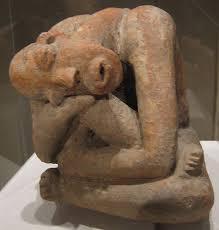










Woman who endured 18 miscarriages and 16 years of IVF shares how she finally became a mum
A woman who finally achieved her dream of becoming a mum after 16 years of gruelling IVF treatment and 18 miscarriages has shared her incredible journey to parenthood.A woman who finally achieved her dream of becoming a mum after 16 years of gruelling IVF treatment and 18 miscarriages has shared her incredible journey to parenthood.Woman who endured 18 miscarriages and 16 years of IVF shares how she finally became a mum.
A woman who finally achieved her dream of becoming a mum after 16 years of gruelling IVF treatment and 18 miscarriages has shared her incredible journey to parenthood.If she had known the odds of carrying a baby to full-term Louise Warneford, 52, from Swindon says she probably have given up at the start.
But, as she mentions in the opening paragraph of her new book, Baby Dreams, then she wouldn’t have her son William, now four. And holding him in her arms for the first time was worth every single tear she’d shed in her long quest to become a mother. Having met her husband, Mark, 58, in 1999, the couple started trying for a baby in the early 2000s, when Louise was in her early 30s.
Mark already had two daughters from his previous marriage and, initially believing he wasn’t going to extend his family, had undergone a vasectoThe couple visited a fertility specialist who advised the best route for them to have their own child would be IUI (Intrauterine Insemination, which involves injecting sperm directly into a woman’s womb) using donor sperm.
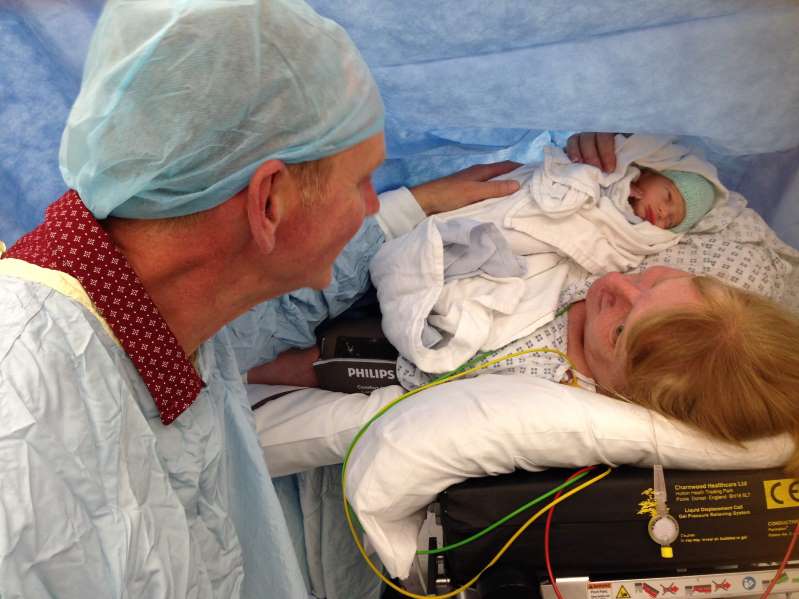
After three months of treatment, Warneford was over the moon to discover she was pregnant. Scans at six, eight and 10 weeks at the fertility clinic revealed everything was fine, so the mum-to-be was referred to her local hospital for her 12-week scan.With her husband away, Warneford attended the appointment alone, expecting it would be similar to her previous scans.
“Nothing can prepare you for the words ‘we can’t find the heartbeat’,” she told Yahoo UK. “The sonographer said she was going to get a second opinion and I started to panic. Then the consultant came in and said ‘I’m so sorry, I’m afraid your baby has died.’” Having opted for a Dilation and curettage (D&C), a procedure to remove tissue from inside the uterus after miscarriage, Warneford recalls being put on a ward with women who were having elective abortions, in a process she describes as “heartbreaking”. my.
Though the couple were both devastated, taking a break from treatment, after six months they decided to try again and were thrilled when Warneford fell pregnant once more.“I was so excited to be pregnant again,” she says. “I didn’t think I’d have another loss, I thought I’d had my bad luck so I didn’t think it would happen again.” But on the way to her doctor to register the pregnancy she felt a sharp pain in her uterus.
“It was like being stabbed with a hot poker,” she says. “It was very quick and sudden and left me feeling completely drained. I had to stop the car and pull over. “And I knew then that the pregnancy had been lost.” After three miscarriages, Warneford was referred to Saint Mary’s, a specialist hospital for recurrent miscarriages, but despite extensive investigations doctors couldn’t find the cause of the pregnancy losses.
“That almost made it worse because if they can find something they can treat it but if nothing is showing up they don’t know what to treat,” she explains. “But obviously there was something wrong as my body seemed to be rejecting the pregnancies.”Having also tried IVF with donor embryos, and after several more miscarriages, the couple made the difficult decision to give up trying for a baby.
“I’d had enough, I couldn’t put myself through it any more,” Warneford explains. “I felt like my body was letting me down and I lost a lot of confidence. I didn’t feel like a proper woman. I felt useless.
“I’m still trying to pick myself up from those feelings now,” she adds.But then she discovered a book, Is your body baby friendly?, describing something known as Natural Killer cells (NK cells), which can lead to complications in pregnancy and in some cases result in the body rejecting the embryos.
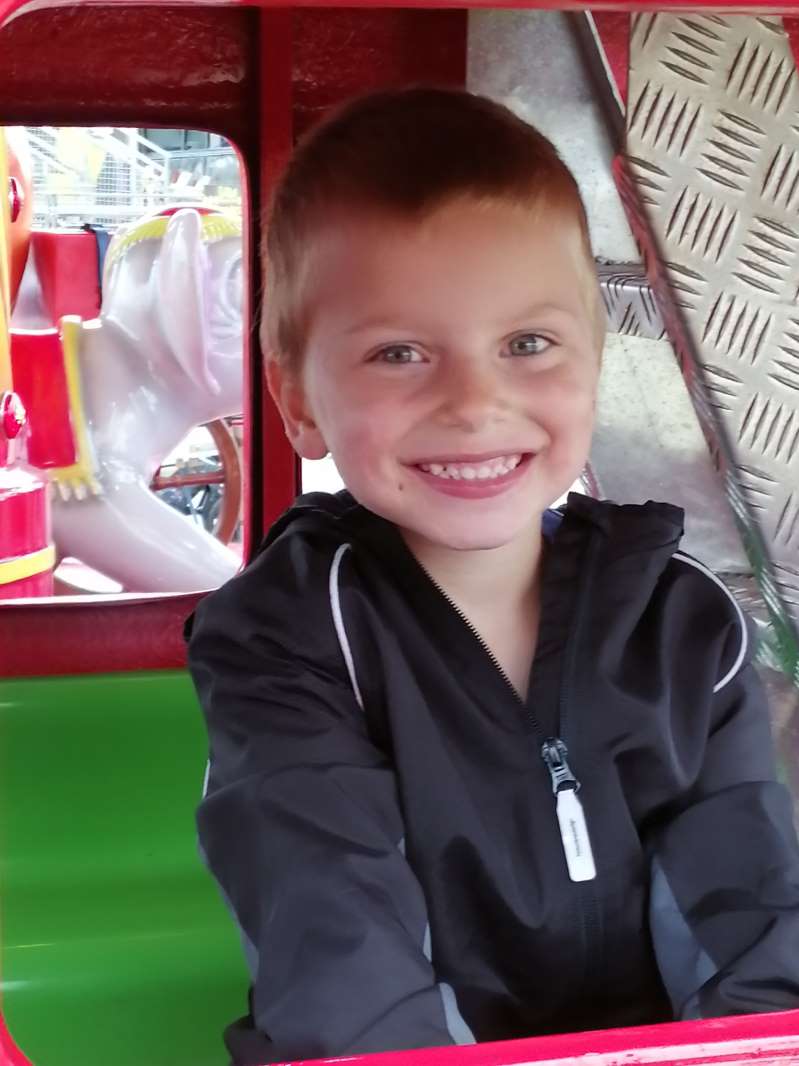
Despite the fact that the couple had given up hope of conceiving, Warneford decided to visit Dr Hassan Shehata, a specialist in maternal medicine, to try and uncover the cause of her miscarriages.“I just really wanted to know why I couldn’t carry a baby to term,” she explains. “It was what I thought about when I woke up in the morning, when I went to bed at night, I was constantly wondering ‘why?’”
But after discovering that the success rate for his protocol was 85-95%, Warneford started wondering if she should try for a baby one last time. “I didn’t do it straight away as I was too scared to try again,” she says. “At this point I just really wanted to know what was wrong with me, but the success rate was a seed planted in my mind. And after that I couldn’t let go.
“I’d made my peace with it, I’d given up I was not going to try again, but hearing the rate changed everything. Following an embryo donation at the Gynem clinic in Prague, which the couple describe as amazing, and at the age of 48, her pregnancy finally went to full-term.
Reference: Yahoo News: Marie Claire Dorking 3 days ago:04/09/2020
Articles - Most Read
- Home
- LIVER DIS-EASE AND GALL BLADDER DIS-EASE
- Contacts
- African Wholistics - Medicines, Machines and Ignorance
- African Wholistics -The Overlooked Revolution
- African Holistics - Seduced by Ignorance and Research
- The Children of the Sun-3
- Kidney Stones-African Holistic Health
- The Serpent and the RainBow-The Jaguar - 2
- PART ONE: DIS-EASE TREATMENT AND HEALTH-3
- 'Tortured' and shackled pupils freed from Nigerian Islamic school
- King Leopold's Ghost - Introduction
- PART ONE: DIS-EASE TREATMENT AND HEALTH-4
- PART ONE: DIS-EASE TREATMENT AND HEALTH-2
- PART ONE: DIS-EASE TREATMENT AND HEALTH-5
- African Wholistics - Medicine
- Menopause
- The Black Pharaohs Nubian Pharaohs of Ancient Egypt
- The Mystery System
- PART ONE: DIS-EASE TREATMENT AND HEALTH-6
Who's On Line?
We have 155 guests and no members online
Ad Agency Remote
Articles - Latest
- The Male G Spot Is Real—and It's the Secret to an Unbelievable Orgasm
- Herbs for Parasitic Infections
- Vaginal Care - From Pubes to Lubes: 8 Ways to Keep Your Vagina Happy
- 5 Negative Side Effects Of Anal Sex
- Your Herbs and Spices Might Contain Arsenic, Cadmium, and Lead
- Struggling COVID-19 Vaccines From AstraZeneca, BioNTech/Pfizer, Moderna Cut Incidence Of Arterial Thromboses That Cause Heart Attacks, Strokes, British Study Shows
- Cartilage comfort - Natural Solutions
- Stop Overthinking Now: 18 Ways to Control Your Mind Again
- Groundbreaking method profiles gene activity in the living brain
- Top 5 health benefits of quinoa
- Chromolaena odorata - Jackanna Bush
- Quickly Drain You Lymph System Using Theses Simple Techniques to Boost Immunity and Remove Toxins
- Doctors from Nigeria 'facing exploitation' in UK
- Amaranth, callaloo, bayam, chauli
- 9 Impressive Benefits of Horsetail
- Collagen The Age-Defying Secret Of The Stars + Popular Products in 2025
- Sarcopenia With Aging
- How to Travel as a Senior (20 Simple Tips)
- Everything you need to know about mangosteen
